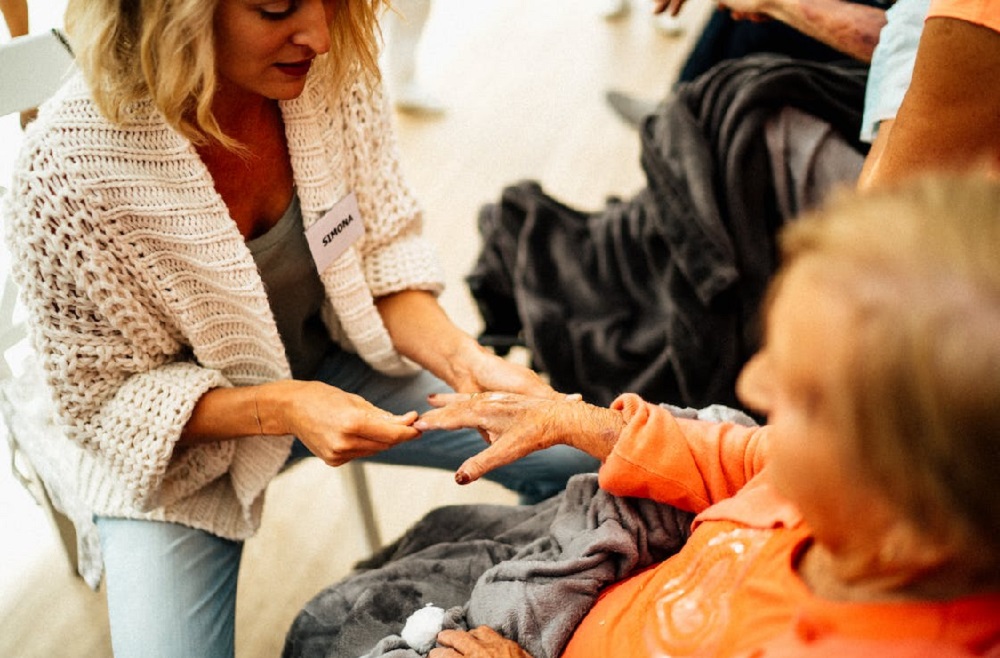Senior Assisted Living Benefits, Challenges, & FAQs

Senior assisted living, often simply referred to as assisted living, stands as a compassionate paradigm of residential care that meticulously caters to the daily needs of seniors. These needs may encompass tasks as simple yet essential as bathing, dressing, managing medications, and preparing meals. The core essence of assisted living is to empower seniors with the support they require while preserving their cherished independence.
The world of senior assisted living has evolved into a popular haven for elderly individuals seeking a supportive, comfortable, and secure environment in their golden years. In this extensive guide, we embark on a journey to unravel the intricate layers of senior assisted living, shedding light on its diverse applications and the formidable challenges it presents.
Whether you are a senior yourself, navigating the path of your twilight years, or a caring family member on a quest to secure the best possible care for your loved one, this article is a treasure trove of invaluable insights that you simply cannot afford to miss.
Benefits of Senior Assisted Living
The realm of senior assisted living is teeming with a host of remarkable advantages that make it a compelling choice for many:
Independence
One of the hallmark features of senior assisted living is the ability for residents to maintain their independence while receiving the necessary assistance.
Social Interaction
These communities serve as hubs of camaraderie and social engagement, offering a panoply of activities that effectively stave off the perils of isolation.
Safety
The facilities are meticulously designed with a keen eye on the safety of their senior inhabitants, effectively reducing the risk of accidents and mishaps.
Nutritious Meals
A daily dose of nourishment is indispensable, and senior assisted living facilities typically offer regular, nutritious meals that cater to various dietary needs and preferences.
Professional Care
The staff in these facilities is meticulously trained and equipped to provide a high level of medical and personal care, ensuring that the residents’ health and well-being are in capable hands.
Housekeeping Services
Seniors relish the comfort of living in a clean and well-maintained environment, thanks to the diligent housekeeping services.
Is Senior Assisted Living Right for You?
The decision to embrace senior assisted living is a deeply personal one, hinging on a multitude of factors that are as unique as the individuals themselves. To arrive at the most informed choice, consider the following facets:
Health Needs
A meticulous assessment of the required level of care is crucial to match the services provided by assisted living facilities with your specific needs.
Budget
The financial aspect is a pivotal consideration. Understand the costs involved and explore the array of financial options available to ensure the best possible fit for your budget.
Location
The significance of proximity cannot be overstated. Opt for a facility that is conveniently located, taking into account the proximity to family or preferred surroundings.
Amenities
Each assisted living facility boasts a unique bouquet of amenities and activities. Evaluate these offerings to find the one that aligns most closely with your preferences and interests.
The Application of Senior Assisted Living
Senior assisted living isn’t a one-size-fits-all solution; it comes in various forms to cater to the diverse needs of seniors:
Independent Living
Ideal for active seniors who seek minimal assistance and relish the freedom to chart their own course.
Assisted Living
Tailored to individuals who require a bit more support in their daily lives, making sure they are comfortable and well-cared for.
Memory Care
A specialized domain crafted with deep empathy and expertise, aimed at individuals grappling with dementia or Alzheimer’s.
Residential Care Homes
These small, cozy settings provide a more personal touch, with dedicated care that is finely tuned to individual needs.
Continuing Care Retirement Communities (CCRCs)
These communities offer an evolving spectrum of care options, ensuring that seniors can seamlessly transition from one level of care to another as their needs change over time.
Making the Transition
The process of transitioning to senior assisted living is not without its emotional challenges, both for the seniors themselves and their families. Here are some key steps to smoothen this process:
Visit Facilities
It is highly advisable to tour different facilities to get a firsthand sense of their atmosphere and to meet the staff and residents.
Involve Loved Ones
The decision to enter assisted living should ideally involve a heartfelt discussion with family members, as their support and understanding can be immensely comforting.
Plan the Move
Organizing belongings and planning the logistics of the move can help make the transition more seamless.
Stay Connected
Maintaining regular contact with residents and staff is vital to foster a sense of belonging and comfort in the new environment.
Challenges in Senior Assisted Living
While senior assisted living offers a plethora of benefits, it is not devoid of challenges. Being aware of these challenges is essential for making an informed decision:
Cost Considerations
Senior assisted living can be a substantial financial commitment. Costs can vary significantly based on location, services, and amenities. Therefore, understanding the pricing structure and exploring potential financial assistance options, such as veterans’ benefits or long-term care insurance, is crucial.
Staffing and Quality of Care
The quality of care provided is inextricably linked to the training and experience of the staff. Families should actively inquire about staff-to-resident ratios, staff qualifications, and the facility’s track record to ensure the best care possible.
Emotional Impact
Transitioning to senior assisted living can be emotionally taxing for both seniors and their families. Common feelings include guilt, sadness, and anxiety. During this critical phase, open and empathetic communication, along with emotional support, are essential to ease the emotional burden.
Medical Needs
Seniors with complex medical conditions may require specialized care. It’s imperative that families ensure the chosen facility can meet these needs or make the necessary arrangements for additional medical care.
Choosing the Right Facility
Selecting the right facility is a pivotal decision, one that warrants thorough research, multiple visits, and consultations to make a well-informed choice that aligns with individual needs and expectations.
Legal and Financial Planning
Senior assisted living often involves legal and financial complexities. Seeking legal advice is highly recommended to navigate issues like estate planning and Medicaid eligibility to ensure that the transition is as smooth as possible.
FAQs
How much does senior assisted living cost?
The cost of senior assisted living can vary widely, but the national average hovers around $4,000 per month. The exact cost is contingent on factors such as location, services, and the level of care required.
Can I visit a senior assisted living facility before making a decision?
Yes, visiting a senior assisted living facility is highly recommended. It offers you the opportunity to experience the environment, meet the staff, and interact with residents, allowing you to make an informed decision.
Are pets allowed in senior assisted living facilities?
The policies regarding pets in senior assisted living facilities can vary from one facility to another. It’s advisable to check with individual facilities to understand their specific pet policies.
What amenities do senior assisted living facilities typically offer?
Senior assisted living facilities typically offer a range of amenities, including dining facilities, activity rooms, fitness centers, transportation services, and more, to enhance the quality of life for their residents.
What’s the difference between assisted living and nursing homes?
Assisted living is designed to provide a more independent lifestyle with support for daily activities, whereas nursing homes are equipped to offer skilled medical care for individuals with serious health conditions.
Can I bring my own furniture to a senior assisted living facility?
Many senior assisted living facilities do permit residents to bring their own furniture, which can help make their living space feel more like home and enhance their comfort.
Conclusion
The decision to transition to senior assisted living is a weighty one, necessitating careful consideration of multiple facets. This comprehensive guide has not only unveiled the multifaceted world of senior assisted living but also shed light on its diverse applications and the formidable challenges involved.
By embracing a deep understanding of its benefits, making an informed choice, and proactively addressing potential challenges, individuals and their families can embark on a journey of transitioning to senior assisted living with confidence and optimism. In doing so, they can ensure that their golden years are filled with comfort, care, and fulfillment.








